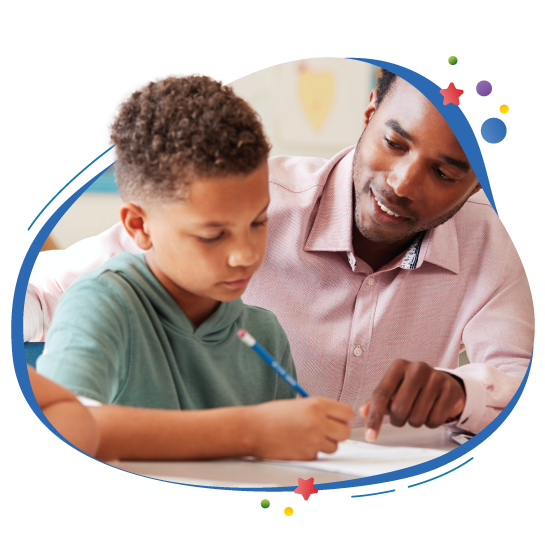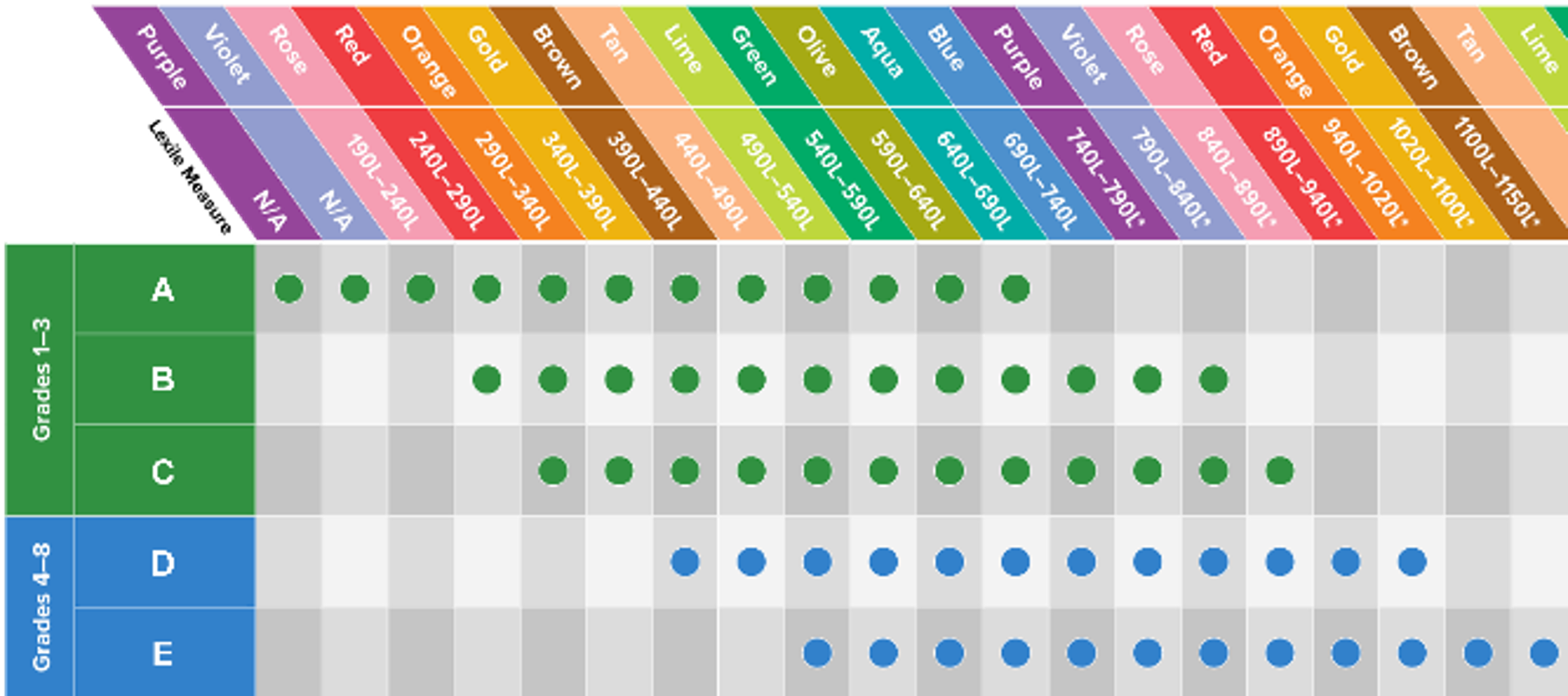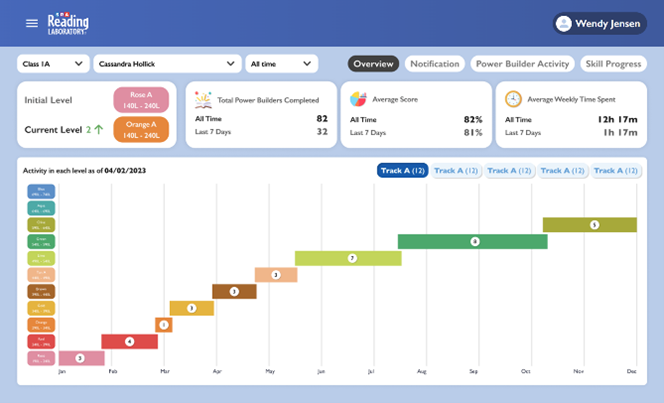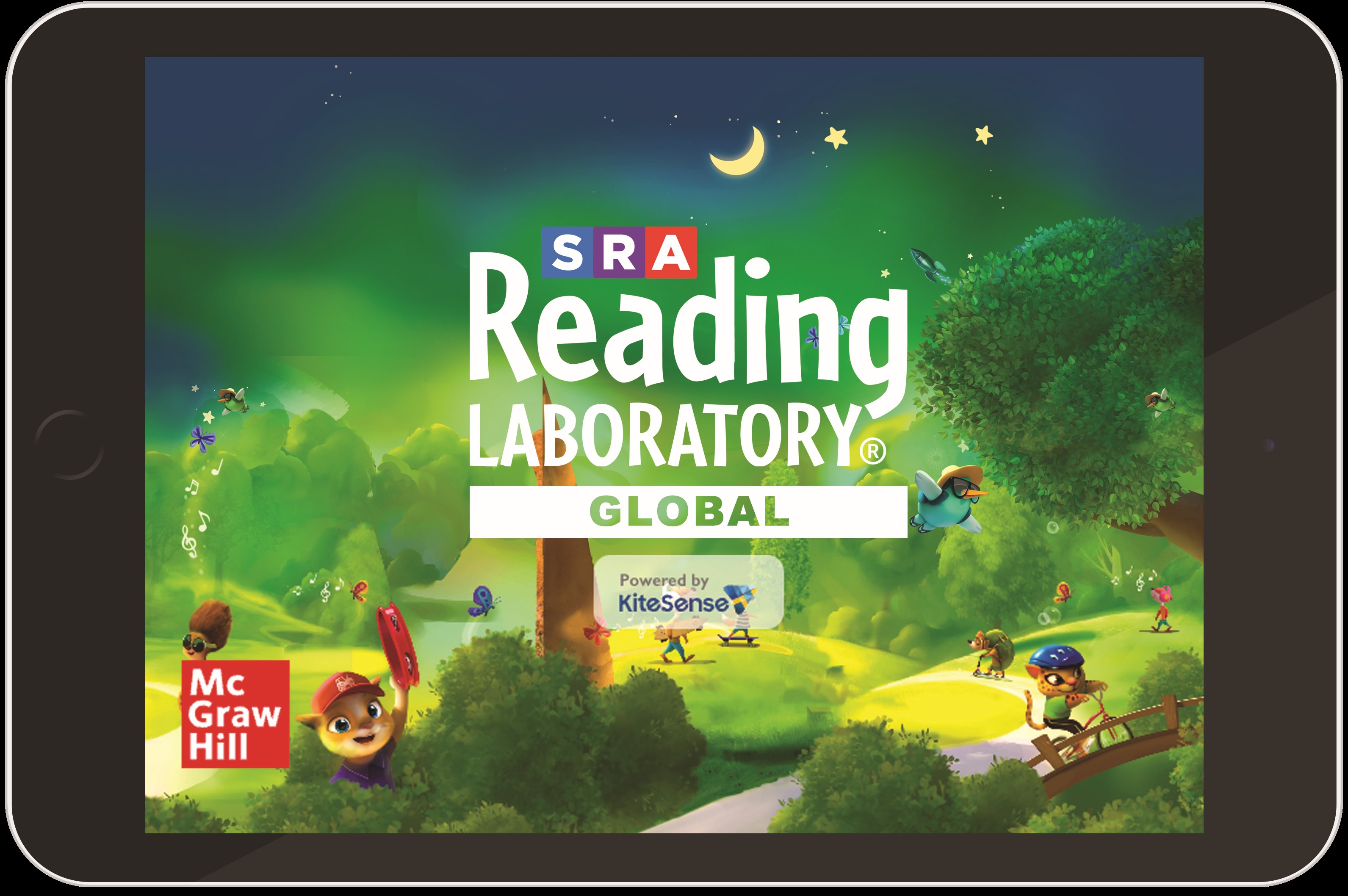Reading Laboratory® Online (Global)
An Adaptive Reading Leveled Program for Grades K - 8
Introducing Reading Laboratory® Online (Global), a trusted and proven online reading program that caters to readers of various levels through its adaptive leveling system.
Think of Reading Laboratory Online (Global) as the GPS for literacy. It not only guides students on their reading journey but also adjusts the route to provide the most suitable content - just as a GPS recalculates your path based on real-time conditions!
Furthermore, the platform recommends activities tailored to each learner's needs, supported by comprehensive analytics and progress tracking. So students can strengthen specific competencies they need help on without detours or unnecessary stops at skills they have already mastered.

Look Forward to


Personalized Learning and Engagement
Say goodbye to learner frustration with bite-sized readings matched to their reading level, fostering student motivation and independence. Reading Laboratory Online offers personalized learning paths with an adaptive leveling system, ensuring each student's growth is nurtured while preventing frustration.


Adaptive Learning Pathways and Comprehensive Progress Tracking
Stay in the driver’s seat with comprehensive analytics and progress tracking of student performance. Teachers can easily identify areas to work on with students in class or sit back and monitor the system intelligently advancing students to more complex content when they're ready and providing manageable content when needed, ensuring an optimal learning pace.


Empowerment Through Skill Building
Get an assistant to help student work on their individual weakness. The program doesn't just get students to read; it enhances specific reading skills. These skill gaps identified by data and the platform recommends relevant activities to close those gaps! Way to encouraging independent skill improvement.
Overview and Features
Research Foundations
From Humble Beginnings to Classrooms Worldwide
SRA Reading Laboratory® was created in 1950 by Don H. Parker, Ph.D., who developed the program while teaching in a rural Florida classroom. Faced with the challenge of reaching different learners, Parker devised a method of color-coded reading levels, so students could begin reading at an appropriate level and work upward through increasingly challenging content.
What began as a simple system housed by a tomato box has evolved over time to include engaging, contemporary literature; new technology; and a host of other components that enhance the program’s proven format while retaining its simplicity. SRA Reading Laboratory is an essential instructional tool for teachers around the world.


Supporting Research
In December of 2000, with support from the National Institute of Child Health and Human Development, the National Reading Panel published a meta-analysis of existing research to determine the most effective strategies for building literacy (NIH Pub. No.00-4754). Their findings fully support the foundational concepts and instructional design of SRA Reading Laboratory.
Comprehension
This report includes research documentation that supports the comprehension skills and strategies found in SRA Reading Laboratory. Examples of cited research include:
Collins, C. (1991). Reading instruction that increases thinking abilities. Journal of Reading, 34(7), 510-516.
Pressley, M., El-dinary, P.B., Gaskins, I., Schuder, T., Bergman, J., Almasi, J., & Brown, R. (1992). Beyond direct explanation: Transactional instruction of reading comprehension strategies. Elementary School Journal, 92(5), 513-555.
Rosenshine, B., & Meister, C. (1997). Cognitive strategy instruction in reading. In S. Stahl & D. Hayes (Eds.), Instructional models in reading. (pp.85-107). Mahwah, NJ: Lawrence Erlbaum Associates.
Phonics
This report includes research documentation that supports the phonics skills and strategies found in SRA Reading Laboratory. Examples of cited research include:
Adams, M.J. (1990). Beginning to read: Thinking and learning about print. Cambridge, MA: MIT Press.
Chall, J. (1996a). Learning to read: The great debate (revised, with a new foreword). New York: McGraw-Hill.
Ehri, L.C. (1998). Grapheme-phoneme knowledge is essential for learning to read words in English. In J.L. Metsala & L.C. Ehri (Eds.), Word recognition in beginning literacy. (pp. 3-40). Mahwah, NJ: Erlbaum
Vocabulary
This report includes research documentation that supports the vocabulary skills and instructional practices found in SRA Reading Laboratory. Examples of cited research include: but are not limited to, the following:
Beck, I.L., Perfetti, C.A., & McKeown, M.G. (1982). Effects of long-term vocabulary instruction on lexical access and reading comprehension. Journal of Educational Psychology, 74(4), 506-521.
Gipe, J.P., & Arnold, R.D. (1979). Teaching vocabulary through familiar associations and contexts. Journal of Reading Behavior, 11(3), 281-285.
Kameenui, E., Carnine, D., & Freschi, R. (1982). Effects of text construction and instructional procedures for teaching word meanings on comprehension and recall. Reading Research Quarterly, 17(3), 367-388.
McKeown, M.G., Beck, I.L., Omanson, R.C., & Pople, M.T. (1985). Some effects of the nature and frequency of vocabulary instruction on the knowledge and use of words. Reading Research Quarterly, 20(5), 522-535.
Grammar
This report includes research documentation that supports the fluency instruction and practices found in the in SRA Reading Laboratory. Examples of cited research include: but are not limited to, the following:
Biemiller, A. (1977-78). Relationships between oral reading rates for letters, words, and simple text in the development of reading achievement. Reading Research Quarterly, 13, 223-253.
Pinnell, G.S., Pikulski, J.J., Wixson, K.K., Campbell, J.R., Gough, P.B., & Beatty, A.S. (1995). Listening to children read aloud. Washington, DC: Office of Educational Research and Improvement, U.S. Department of Education.
Strecker, S., Roser, N., & Martinez, M. (1998). Toward understanding oral reading fluency. In T. Shanahan & F. Rodriguez-Brown (Eds.) Forty-seventh Yearbook of the National Reading Conference. (pp. 295-310). Chicago, IL: The National Reading Conference.
Wagner, R., Torgesen, J. & Rashotte, C. (1999). Comprehensive test of phonological processes. Austin, TX: Pro-Ed.
Features Coming Soon
Discover the exciting features on the horizon for Reading Laboratory Online
Dictionary Functions for Multiple Languages
Translation Functions for Multiple Languages
Soon, access a built-in translation function for up to 8 languages, enhancing language learning and comprehension.
Tablet App for Offline Access
Tablet App for Offline Access
Enjoy the flexibility of offline access with our upcoming tablet app, ensuring learning continues even without an internet connection.
Enhanced SSO & Rostering Options
Enhanced SSO Options
We're expanding single sign-on (SSO) options to streamline user management for educators!
Dictionary Functions for Multiple Languages
Soon, access a built-in dictionary-translation function for up to 8 languages, enhancing language learning and comprehension.
Tablet App for Offline Access
Enjoy the flexibility of offline access with our upcoming tablet app, ensuring learning continues even without an internet connection.
American to British English Setting
Administrators will soon be able to change the default English language setting with a nifty toggle coming soon!
Questions?
Get in Touch
If you're having trouble with any of our online platforms, need student or instructor resources, or are generally looking for more information on a product, we're here to help. Simply fill out this short form and one of our local representatives will be in touch with you within 24 hours.





